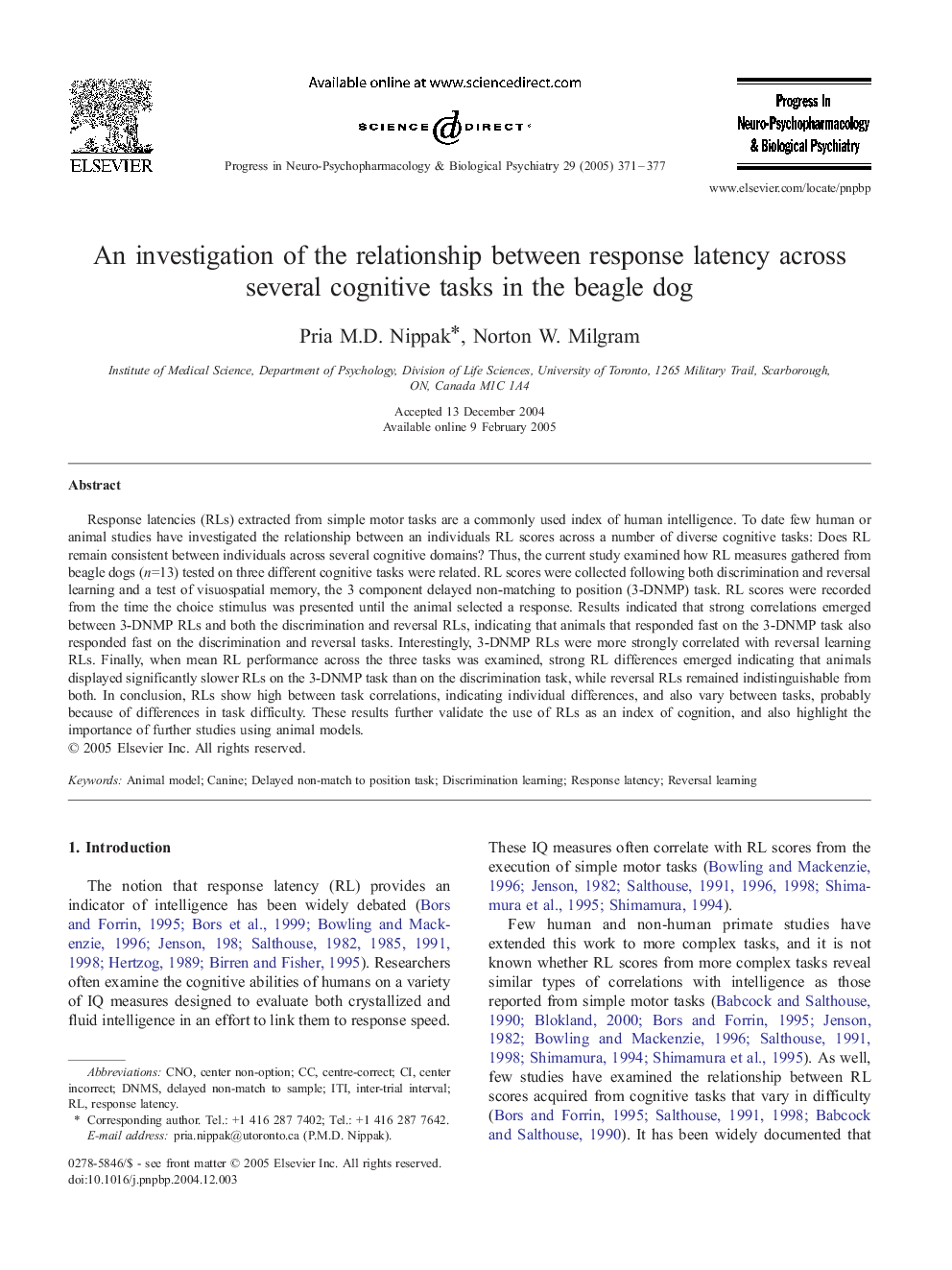| Article ID | Journal | Published Year | Pages | File Type |
|---|---|---|---|---|
| 9016340 | Progress in Neuro-Psychopharmacology and Biological Psychiatry | 2005 | 7 Pages |
Abstract
Response latencies (RLs) extracted from simple motor tasks are a commonly used index of human intelligence. To date few human or animal studies have investigated the relationship between an individuals RL scores across a number of diverse cognitive tasks: Does RL remain consistent between individuals across several cognitive domains? Thus, the current study examined how RL measures gathered from beagle dogs (n=13) tested on three different cognitive tasks were related. RL scores were collected following both discrimination and reversal learning and a test of visuospatial memory, the 3 component delayed non-matching to position (3-DNMP) task. RL scores were recorded from the time the choice stimulus was presented until the animal selected a response. Results indicated that strong correlations emerged between 3-DNMP RLs and both the discrimination and reversal RLs, indicating that animals that responded fast on the 3-DNMP task also responded fast on the discrimination and reversal tasks. Interestingly, 3-DNMP RLs were more strongly correlated with reversal learning RLs. Finally, when mean RL performance across the three tasks was examined, strong RL differences emerged indicating that animals displayed significantly slower RLs on the 3-DNMP task than on the discrimination task, while reversal RLs remained indistinguishable from both. In conclusion, RLs show high between task correlations, indicating individual differences, and also vary between tasks, probably because of differences in task difficulty. These results further validate the use of RLs as an index of cognition, and also highlight the importance of further studies using animal models.
Keywords
Related Topics
Life Sciences
Neuroscience
Biological Psychiatry
Authors
Pria M.D. Nippak, Norton W. Milgram,
